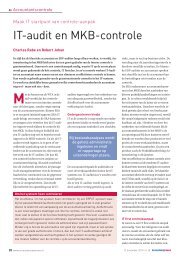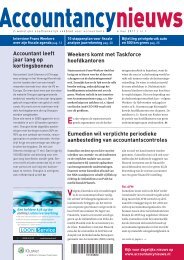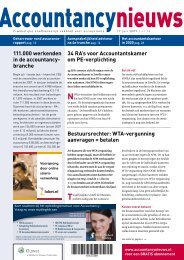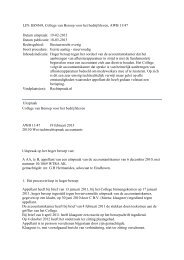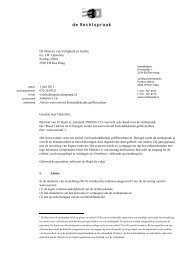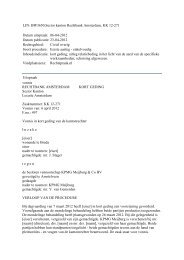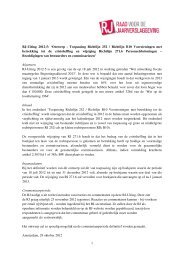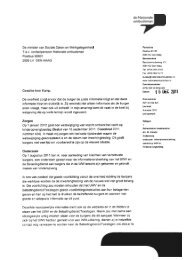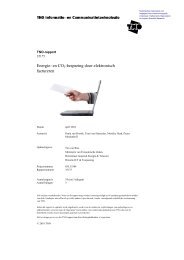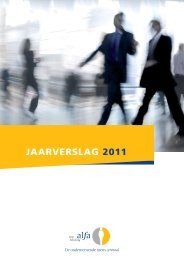Appetite for change - Accountancy Nieuws
Appetite for change - Accountancy Nieuws
Appetite for change - Accountancy Nieuws
Create successful ePaper yourself
Turn your PDF publications into a flip-book with our unique Google optimized e-Paper software.
Section 4How can policies find support?Figure 20Overall, opinion is divided on ways of encouraging behaviourTotal (%)UKFranceGermanySpainSwedenNetherlandsCzech RepublicCanadaUSARussiaBrazilChinaIndiaSouth AfricaAustraliaEmissions Trading Scheme47 41 1236 46 1830 66 434 48 1839 46 1440 50 1046 46 729 36 3652 40 846 36 1933 50 1770 26 460 28 1276 2453 37 1043 48 10Carbon TaxNeither/Don’t knowThinking about these two different ways of encouraging responsibleenvironmental behaviour, which do you prefer from a corporate point of view?Base: Total (654)Many business leaders outside the EU share the fear thattrading schemes will require a new, complex and costlyinfrastructure. They also agree that a carbon tax would be“easier to understand,” “more equitable” and “more difficultto falsify.” A significant number of executives believe thatmarket trading will simply not reduce emissions despite thecontrary evidence of the EU ETS and the North Americanacid rain program. They fear trading schemes will simply shiftallowances across borders, as opposed to reducing totalemissions. A South African executive says, “Emissions tradingwill be abused. Europe and the US will dump it into the skyand buy the credits from Africa.” Executives in Russia andAustralia show particularly strong support <strong>for</strong> a tax.Carbon trading supporters make similar arguments (see fig.21 on page 31). An Australian trading supporter believes,“Taxes have no impact on reducing emissions. If youcan af<strong>for</strong>d the tax…you keep emitting.” “Tax,” accordingto a Brazilian executive, “is subject to tax dodging andcorruption.” Trading advocates emphasise the flexibility topurchase allowances when the technologies that reduceemissions are not available or af<strong>for</strong>dable. They also believethat a rewards-based market system is the most efficientmethod of directing investment towards the reduction ofgreenhouse gas emissions.Outside of the EU, the majority of companies prefer a markettrading mechanism to a tax as the best way to encourageresponsible environmental behaviour. Worldwide 68 percent of businesses support the idea of emissions trading(four per cent more than support a carbon tax) (see figs. 930 <strong>Appetite</strong> <strong>for</strong> <strong>change</strong>. PricewaterhouseCoopers.



